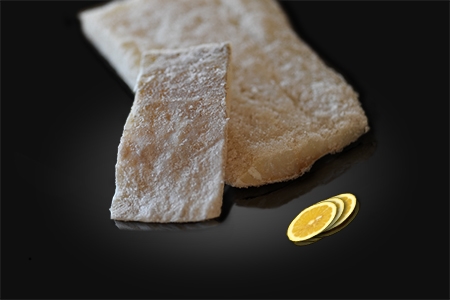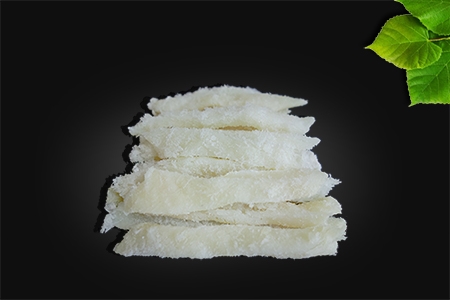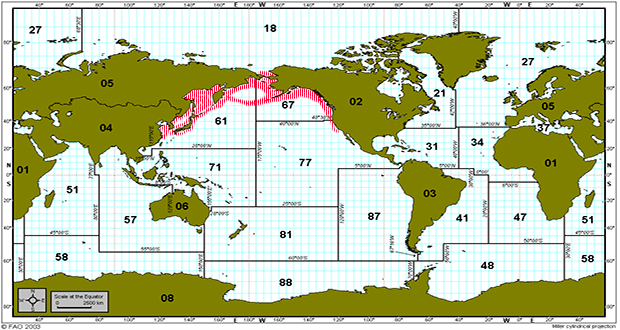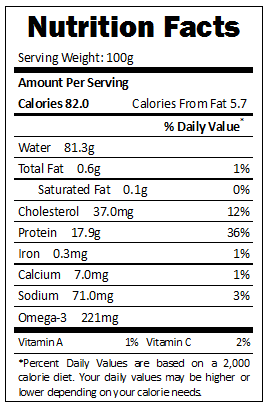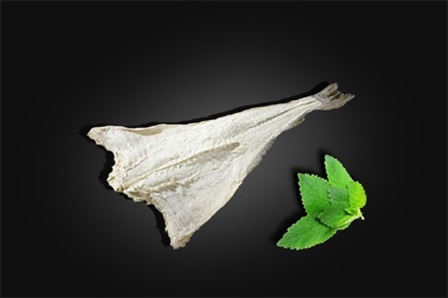YOU WANT HEALTHY FOOD
WE MAKE HEALTHY FOOD...
DRIED SALTED - Pacific Cod
Scientific Name: Gadus macrocephalus
Species Description
The dorsal fins are widely separated. The pelvic fins have a slightly elongated filament. The lateral line is continuous to about the back end of the first dorsal-fin base; it is interrupted at the read of the body. On the head are lateral line pores. Body color is olive green to brown on the back and becomes silvery on the sides and pale ventrally, often with mottled patterns or blotches.
Distribution
North Pacific: from Kivalina, Alaska, to the southern Sea of Japan and to Carmel, California, USA.
Fishing Methods
Farm
Salted Portion
Dried salted portions are cut from the fillets that have been preserved by drying after salting. They are usually sun-dried on metal or wooden frames outdoors but can also be dired indoors by electrical heating tunnels.
The moisture rate ranges 48-51%.
Packing: in 5kg polybag or 400g plastic tray.
Salted Migas
Dried salted migas are slices or bits and pieces torn from the fillets that have been preserved by drying after salting. The fresh bits and pieces of fish flesh can also be salted and dried as migas. They are usually sun-dried on metal or wooden frames outdoors but can also be dired indoors by electrical heating tunnels.
The moisture rate ranges 48-51%.
Packing: in 5kg polybag or 400g plastic tray.
Fishing Ground Map
PRODUCT DETAILS
Salted Fillet
A fillet is a slice of meat that starts from behind the head down to the tail. The fillet can be with or without pinbones, skin-on or skinless.
Dried salted fillets have been preserved by drying after salting. They are usually sun-dried on metal or wooden frames outdoors but can also be dired indoors by electrical heating tunnels.
The moisture rate ranges 48-51%.
Packing: in 5kg polybag or 400g plastic tray.
Scan to your
address book
Email: contact@shinewayseafood.com
Website: www.shinewayseafood.com
Phone: 86 532 8818 6200
Webfax: 86532 8265 9860
Add. Room 1-603, Bldg #2, Shandong Lu 109, Qingdao 266071, China
Technical support: facecloud

